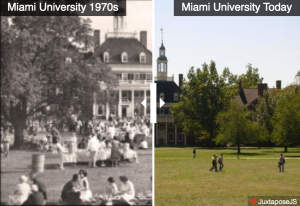Podcasting 2.0
According to Wikipedia, “a podcast is an episodic series of digital media files which a user can set up so that new episodes are automatically downloaded via web syndication to the user’s own local computer or portable media player.”
Today, podcasting is an important tool in Web 2.0. Jacob Media’s Blog conducted a new web study of radio listeners that showed a significant increase in the importance of podcasting and on-demand programming. Important figures from the study include:
- More than 90% of respondents spend at least one hour per day with radio and/or television.
- 84% of respondents now own a smartphone, and 66% have a tablet.
- Nearly half the respondents own a “smart” TV or use Apple TV or Chromecast.
- 57% of respondents use streaming audio at least once per week
- Podcasting has seen a large increase year over year: 28% have now listened to a podcast, or on-demand audio, at least once in the last month. Last year this figure was at 21%.
In October of last year, Google published a portal for podcasters which made publishing podcasts much easier. The portal allows podcasters to upload their shows to Google Play Music before the service was opened up to listeners. “Along with direct searches and browsing for podcasts, the service will connect new listeners with podcasts based on what they’re doing, how they’re feeling, or what they’re interested in.” [Read Here]
“Accused” Podcast

When thinking about the role of podcasts in my life, I thought back to a podcast that my friends suggested I listen to called Accused, by the Cincinnati Enquirer. The podcast follows the unsolved murder of student Elizabeth Andes at Miami University in 1978 and brings light to how the Oxford Ohio police mismanaged the investigation. My friends and I are currently students at Miami University so we were extremely intrigued with the topic of the podcast.
 (Elizabeth Andes)
(Elizabeth Andes)
Initially, police suspected Andes boyfriend, Bob Young, who found her body, to be the killer. After 15 hours of interrogation, Young confessed and was charged with the crime. However, Young retracted his statement and his lawyer offered Oxford police many other leads- such as her maintenance man who visited her apartment three times the week leading up to her death and her boss who asked to see Andes the day she was killed.
Eventually, Young was found innocent in court of the crime in 1983. Following the trial, the Oxford police failed to keep track of the information vital to the case. According to the podcast, a courier named Bruce Horner picked up the evidence at the Cleveland courthouse, but there was no record of where it ended up. Horner was killed in Iraq in 2007 and no one knows where the items are today. The vital pieces of evidence missing include- scissors used to puncture Andes’ chest, the bathrobe sash, shoelace and scarf used to tie and strangle her and the scrapings taken from beneath her fingernails. The missing evidence has caused the Butler County police to have no other leads in the case. [Article].
I think the appeal to this podcast is the ability to feel like you are apart of the action. When listening to the podcast, you feel as though you are there with the producer, discovering facts and searching for answers. In this case, the Cincinnati Enquirer was not just re examining the murder, but hunting for more answers that could lead to the real killer. This is another reason why podcasts like this are so popular today, because listeners feel as though they can make a difference. There’s a rush of adrenaline every time the producer discovering something new- you feel as though you’re apart of it. Another extremely popular podcast today that investigates a murder case is Serial, by Sarah Koenig.


